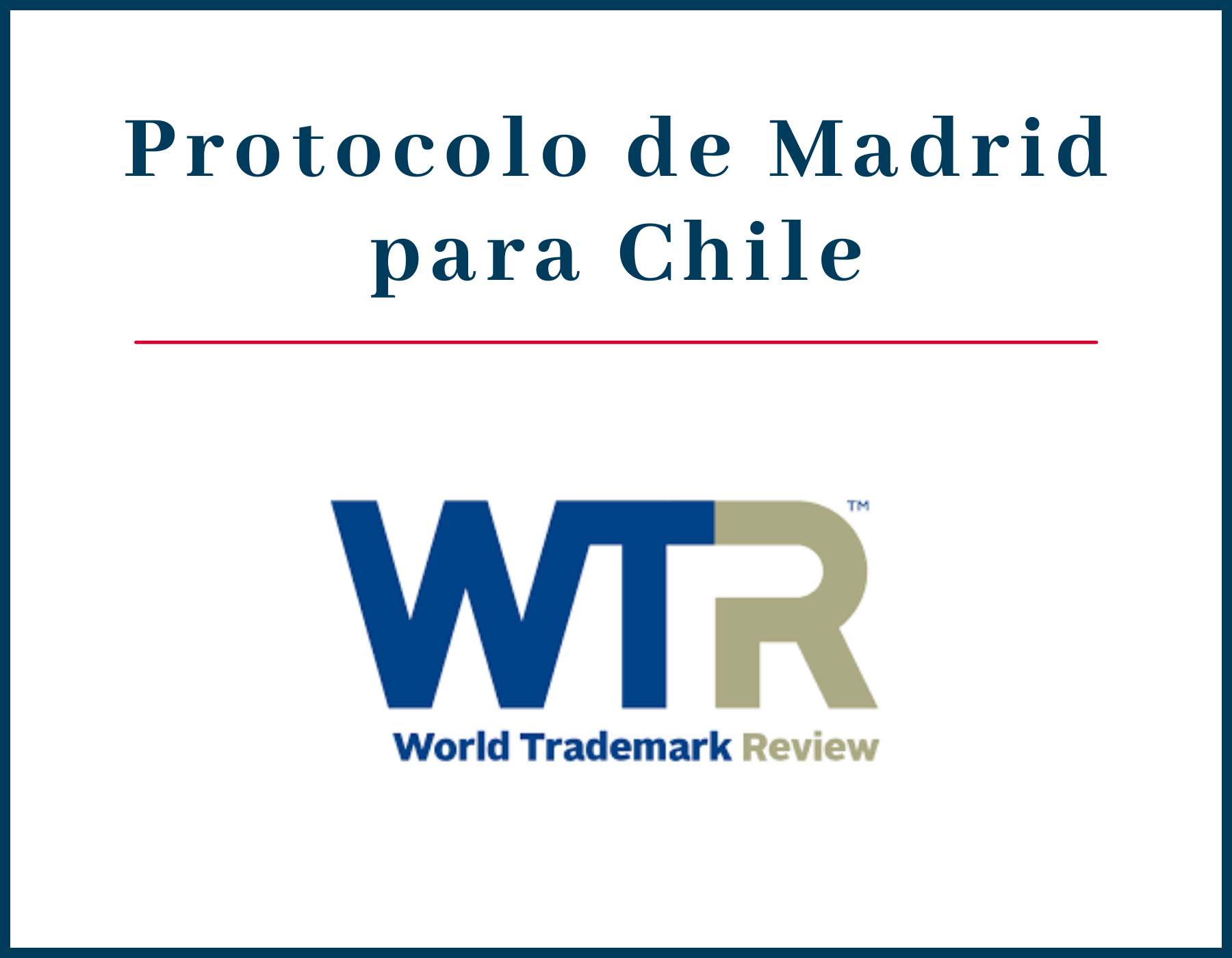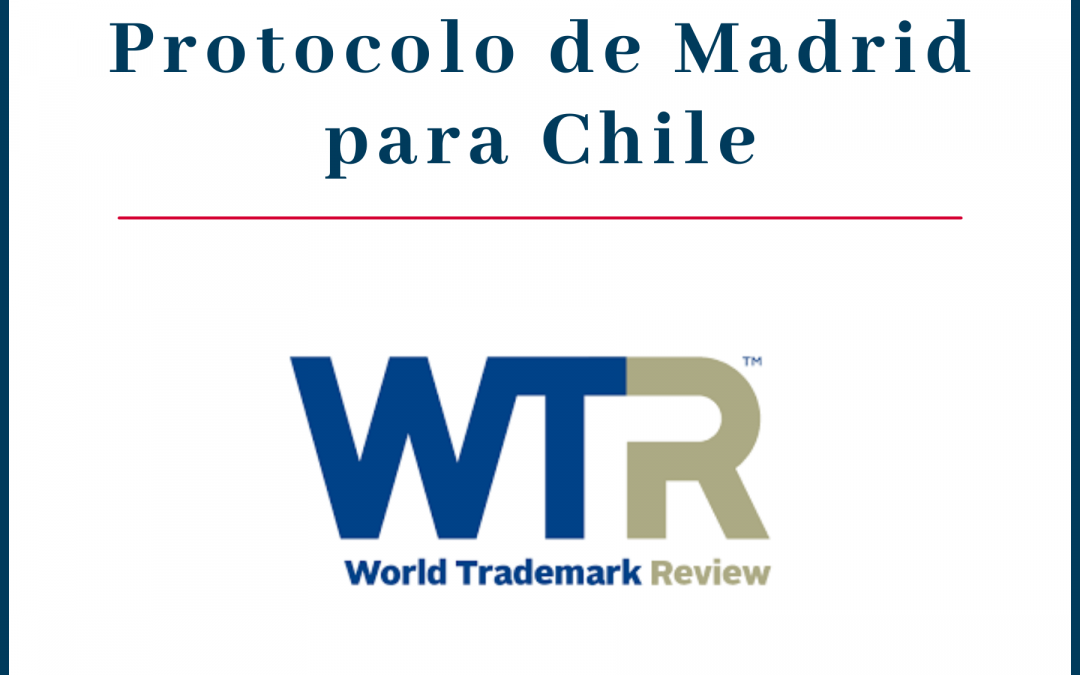
“Not sure it is the right time”: practitioners question Chile’s move to approve the Madrid Protocol
- Chile has set in motion the process to approve the Madrid Protocol in Congress
- Slowness to implement modernisations of the Trademark Law a concern locally
- IP office expected to keep up with the increased demand of Madrid registrations
The Chilean government has set in motion the process for accession to the Madrid Protocol. If Chile joins, it will be the fifth country in Latin America to do so, accompanying Brazil, Colombia, Cuba and Trinidad and Tobago. However, local experts have expressed concern that the country’s existing legal structures may not be ready to handle international registrations.
The draft agreement to approve the Madrid Protocol was entered into Chile’s constitutional procedure on 2 December. On Tuesday, discussion of the draft began in a session held by the Foreign Relations Committee of the Chamber of Deputies.
National director of the Chile National Institute of Industrial Property (INAPI) Loreto Bresky said (translated by Google): “Chilean entrepreneurs will have fewer barriers when positioning and registering their brands in international markets… Therefore, it will be a tremendous advance that we have great expectations for its benefit to the local economy and to those companies that voluntarily want to take advantage of this system.”
However, concerns have been raised over the impact of implementation of the Madrid Protocol on INAPI’s workloads and the readiness of the current legal framework. Felipe Claro, a partner at Claro & Cia, told WTR: “Since we are reshaping the Constitution, it may take a while to see what the IP system will be in the future. I am not sure it is the right time [to accede]. I would rather prefer to postpone it until we have a new Constitution in force.”
However, waiting for the new Constitution would lead to a significant delay, suggests Sofía Covarrubias, leader of the international trademarks department at Covarrubias & Cia. The project for formulating a new Industrial Property Law had its procedure for approval initiated in 2013 but is still pending. Additionally, the Project of Short Law, which was introduced in Congress in 2018, only considered changes to the Industrial Property Law to adjust it to particular treaties, but despite the short gestation time expected for the project, it is also yet to be approved.
The reason for slow approval is that members of Congress are weighing political considerations above technical matters related to the IP system. Covarrubias fears that the same may happen with the process for approving the Madrid Protocol. “The process for approval is not that simple. Committees of both chambers will hear different organisations and professional commissions with information about the benefits and disadvantages to the protocol and then issue a recommendation to them. The process described could take months and, eventually, even years. It entirely depends on how the matter develops politically.”
With Chile yet to implement new trademark laws that address issues such as non-use cancellation actions or non-traditional trademarks, Covarrubias is concerned that it may be too soon to consider the Madrid Protocol. “I don’t know if this is the right time for Chile to join the protocol,” she says. While “it is important for our country to be more updated in IP matters as we are a little bit behind”, she hopes instead that the spectre of Madrid may be the spur needed to speed up deliberations over the existing law. “Hopefully, this motivation to join the protocol will also encourage the acceptance of these projects that are stuck in Congress.”
Alongside concerns about the legal framework’s preparedness, Claro also questions the benefits of the Madrid Protocol to the Chilean economy. In terms of Chile’s international trade, he does not believe that it will have a great effect. “It won’t be much since we are a small country. Some big companies with big portfolios will benefit from the system though.”
Local practitioner concern over joining the Madrid system is not without precedent. In May 2019 we published a piece titled “‘Not totally prepared’ – Brazilian Senate approves Madrid Protocol, but concerns raised over IP office readiness”. Thankfully, there is less concern on that front with respect to INAPI, which is well regarded as one of the more advanced IP offices in Latin America. “Of course joining the protocol will be a challenge for INAPI. They will have to prepare their personnel and systems to face international registrations and the increase of work,” says Covarrubias. “But, in my opinion, INAPI is totally prepared for this. Currently, the prosecution of trademarks is completely online and on average, it only takes 3.3 months. Probably the most challenging part will be to introduce the new procedure to companies.”
In October 2019 we published a further in-depth piece focused on Brazil’s accession to the Madrid Protocol. The article observed law firm concern over the impact of Madrid on their own business, delays in the legislative process and questions over general preparedness. However, Brazil pushed on and its adoption of the protocol was seen as a significant moment, potentially having a domino effect in the region. As it stands, Chile could be the next country in the sequence.

